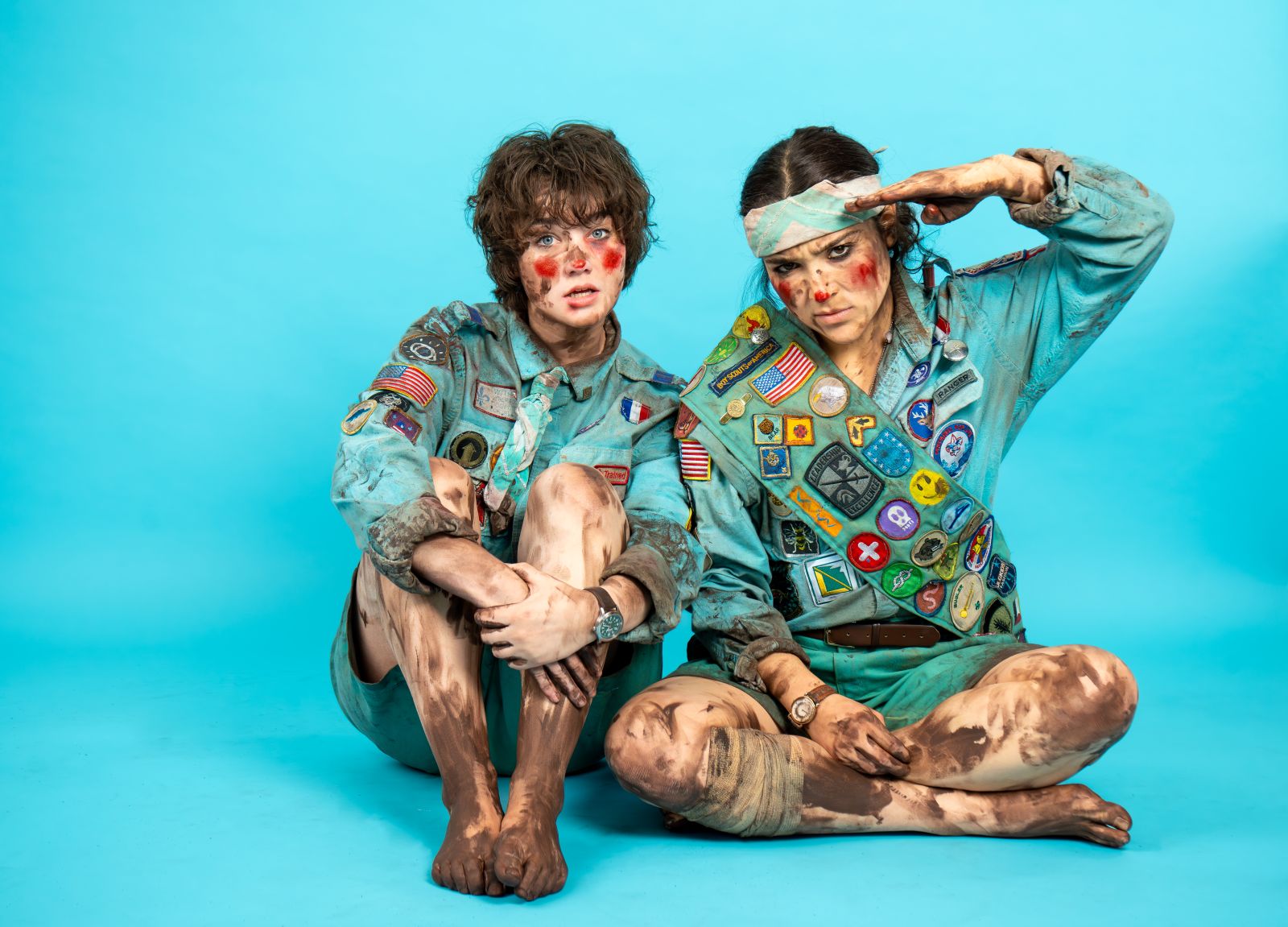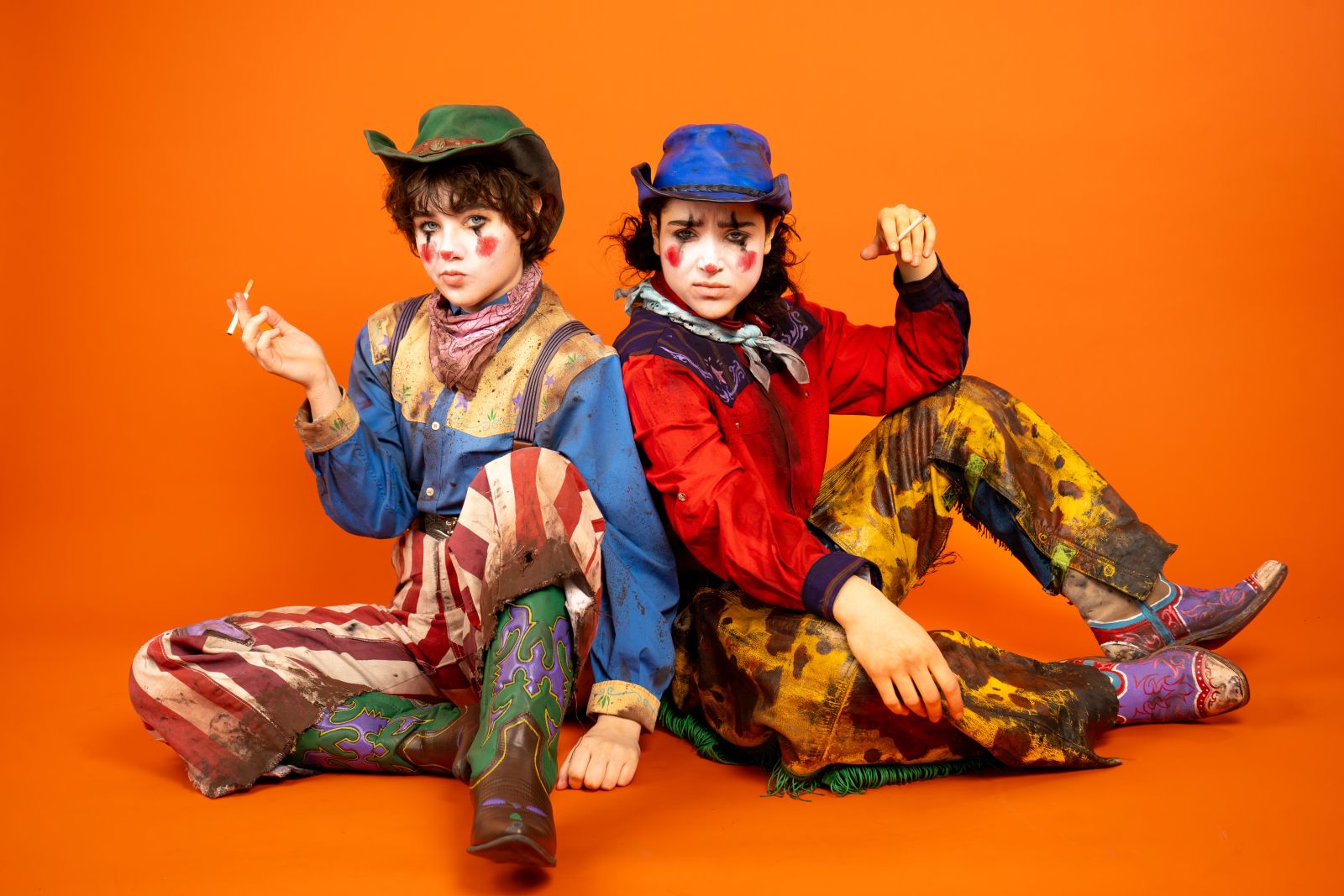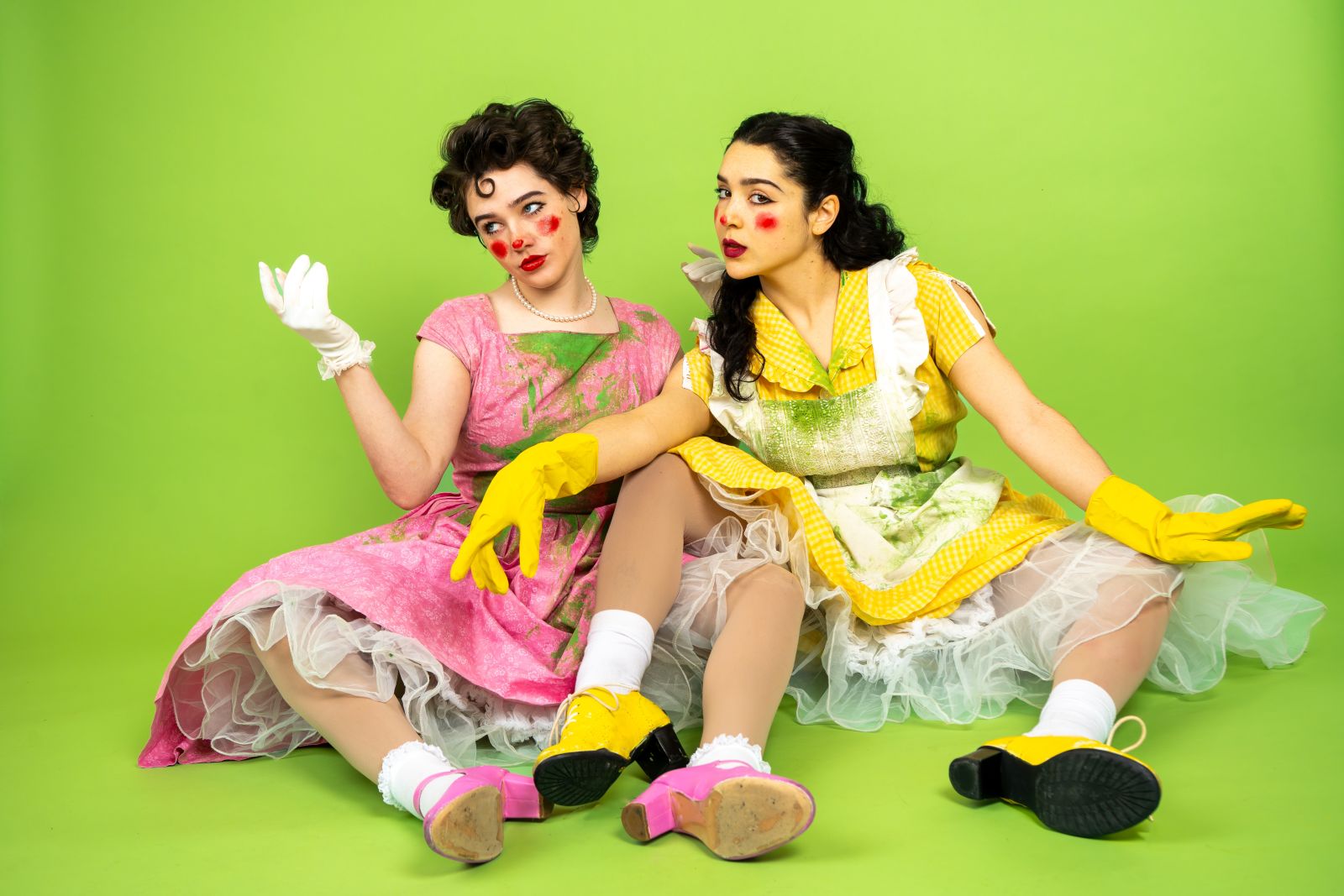Xhloe and Natasha on the Fringe: 'The closer we get, the more scared we are'
Childhood pals and drama club co-presidents, Xhloe Rice and Natasha Roland were born to make theatre that veers between slapstick and subversion. These multi award-winning New Yorkers tell Greg Thomas that performing three different shows at this year’s Fringe seemed like a good idea at the time

What a pair of clowns. Award-winning avant-theatre duo Xhloe Rice and Natasha Roland (aka Xhloe And Natasha) have taken the Fringe by storm over the last half-decade in a way that’s hard to relate without resorting to clichés such as ‘came from nowhere’ or ‘dream come true’: take your pick. As they speak to me over a video-call from their apartments in Brooklyn, they still seem a little breathless from it all. ‘Last year people were stopping us on the sidewalk as soon as the run started, which doesn’t happen anywhere else in the world,’ Rice remembers. ‘Fringe has been such a crazy experience for us.’
In 2022, the New York-based writers and performers packed up their suitcases and headed to Scotland for a self-funded debut, And Then The Rodeo Burned Down, an absurdist black comedy lampooning the American myth of upward mobility using motifs of the old west and plenty of fourth-wall breaking. After initially performing to tiny crowds, the piece started garnering rave reviews and wowing audiences. The seats filled up, the lavish prose flowed, and the pair won a coveted Fringe First.
But that, of course, is not all. The next year Xhloe And Natasha returned with What If They Ate The Baby?, exploring surveillance culture and the erosion of abortion rights in America through the lens of 1950s housewifery. They repeated the trick: more sell-outs and five-star reviews, plus another Fringe First. Rounding things off, in 2024 yet another new piece was debuted, A Letter To Lyndon B Johnson Or God: Whoever Reads This First, in which the duo became boy scouts whose personas blurred with US soldiers in Vietnam. Another play, another Fringe First.
Success inevitably brings pressure. How to keep delivering? ‘It’s a crazy pattern to try to maintain,’ Roland says. ‘After we won last year we looked at each other and thought: what do we do now?’ The answer, they decided, was to return with all three shows for a celebratory triple-header, a thank-you to the UK fans that first broke their act, and a chance to take stock of how far they’ve come. ‘When we started doing this we were both working full-time jobs and rehearsing at night,’ recalls Roland. ‘Now we’re... well, we’re not rolling in it, but we do this for a living.’ Sure, but what about the prospect of Fringe burnout from performing three shows a day? ‘Yeah, this felt like such a good idea nine months ago,’ Rice laughs. ‘The closer we get, the more scared we are.’

Where did it all begin? Again, it’s hard not to reach for the heartwarming stock phrases, because the duo are real-life, honest-to-goodness childhood best friends. ‘Our lockers were next to each other,’ Rice begins, before Roland chimes in like an identical twin: ‘they were arranged alphabetically.’ Just like siblings are reputed to sing in the sweetest harmonies (think of The Everly Brothers), there’s something about the inch-perfect physical and verbal choreography of their act that speaks to a relationship of deep intimacy, affection and trust. It also reflects the fact that their shared working methods were developed over those crucial, formative teenage years when the brain is at its most plastic. ‘We were co-presidents of the drama club and we hosted the morning announcements and talent shows,’ Rice recalls. ‘We were on the improv team together and in the midst of all that, we found what we’d now call our process. When we got older and learned what clowning is, what “devising” means, it was just a way of putting new language to what we were already doing.’
The adolescent bond also meant shared frames of reference. All three of their award-winning shows lampoon tropes of Americana that they grew up with in smalltown USA, from boy scouts to cowboys and housewives. ‘Edgewood, Maryland is about 30 minutes north of Baltimore,’ says Rice. ‘In the centre and north of the state, where we come from, there’s a lot of farmland. It’s very right-leaning, although you’re a 45-minute drive from a big metropolitan centre. My neighbourhood really was the classic American suburb.’ Both performers are the product of military families and learned early on that the USA was the ‘greatest country on earth’. Rice adds: ‘we’re both post-9/11 children, coming of age at a time of rising nationalism and political tension. That influences everything that we write.’

You could reach for lots of adjectives to describe the unique performance genre moulded by these all-American anxieties. But both are keen to emphasise that the clowning tradition ties it all together. ‘We both got into clowning at university in New York,’ says Roland. ‘But I also studied clowning in Italy for a month during my second year of college, and that was when I fell in love with it. It was intensive commedia dell’arte clowning. It spoke to something in me that I’d always known was there.’
On her return, she began to infuse the spirit of classic Italian comic theatre (with its stock characters such as the melancholy jester or Pierrot, the light-hearted Arlecchino or Harlequin, and the hapless scholar Il Dottore) into her newly formed act with Rice. The pair also realised that the tradition of clowning, both in Italy and the USA, was capacious enough for them to combine a love of slapstick and broad physical comedy with a more subversive interest in American history and politics. ‘When we put that together with our absurdist writing style, it was a match made in heaven,’ Roland says.
The term ‘absurdist’ here hints at the pair’s more high-brow influences. While they wear their erudition lightly, there’s a healthy dollop of Ionesco, Beckett and Tom Stoppard in the mix, too. ‘When I first read Stoppard’s Rosencrantz And Guildenstern Are Dead, my mind opened up to something else entirely,’ remembers Roland. Their interest in cyclical narratives and ambiguous endings stems from this set of influences. Suitably enough, much existentialist theatre of the mid to late 20th century was itself informed by the tragi-comic characters of popular stage and film. Think of the starring role given to Buster Keaton (another of the duo’s stated loves, along with the Marx Brothers) in Beckett’s 1965 short cinema piece, Film.

How does all this play out in Xhloe And Natasha? No spoilers, but let’s just say the first few minutes of And Then The Rodeo Burned Down consist of a series of tightly choreographed, mirrored physical gestures, showing a rodeo clown and his shadow going about their morning routines. They are oblivious to one another’s existence until they turn to face each other and scream in terror. There’s something decidedly existentialist about dramatising this sudden, jarring exposure to a hidden aspect of yourself. In one sense, it has Left Bank ennui written all over it. But the routine, like their oeuvre as a whole, is also playful and energetic, a chance to express joy in physical movement and dance, and to queer up some masculine all-American archetypes.
As I speak to Xhloe And Natasha they’re in the middle of a run of A Letter To Lyndon B Johnson Or God: Whoever Reads This First at New York’s SoHo Playhouse. It’s part of that iconic Off-Broadway theatre’s International Fringe Encore Series, a bonus prize the pair picked up at The List Festival Awards last August. And guess what? They’ve been getting rave reviews. And they’ve been cracking new audiences while shoring up a cult-like status for their core following. One fan travelled from Atlanta for the show (‘that’s a six-hour flight,’ Roland marvels). Another told them they were on the third of four planned visits, ‘so they could see the play from every position,’ Rice chimes in. Among it all, they’ve also been finding ways to hone the contents of their three Fringe-bound plays. ‘There’s so much life left in these shows,’ Roland insists. ‘It’s been luxurious being able to dive back into them. I think they’ve all gotten so much stronger.’ Roll up, roll up.
Xhloe And Natasha perform And Then The Rodeo Burned Down and What If They Ate The Baby?, 1–23 August, and A Letter To Lyndon B Johnson Or God: Whoever Reads This First, Saturday 2–Saturday 23 August; all shows at Space Niddry Street, times vary.